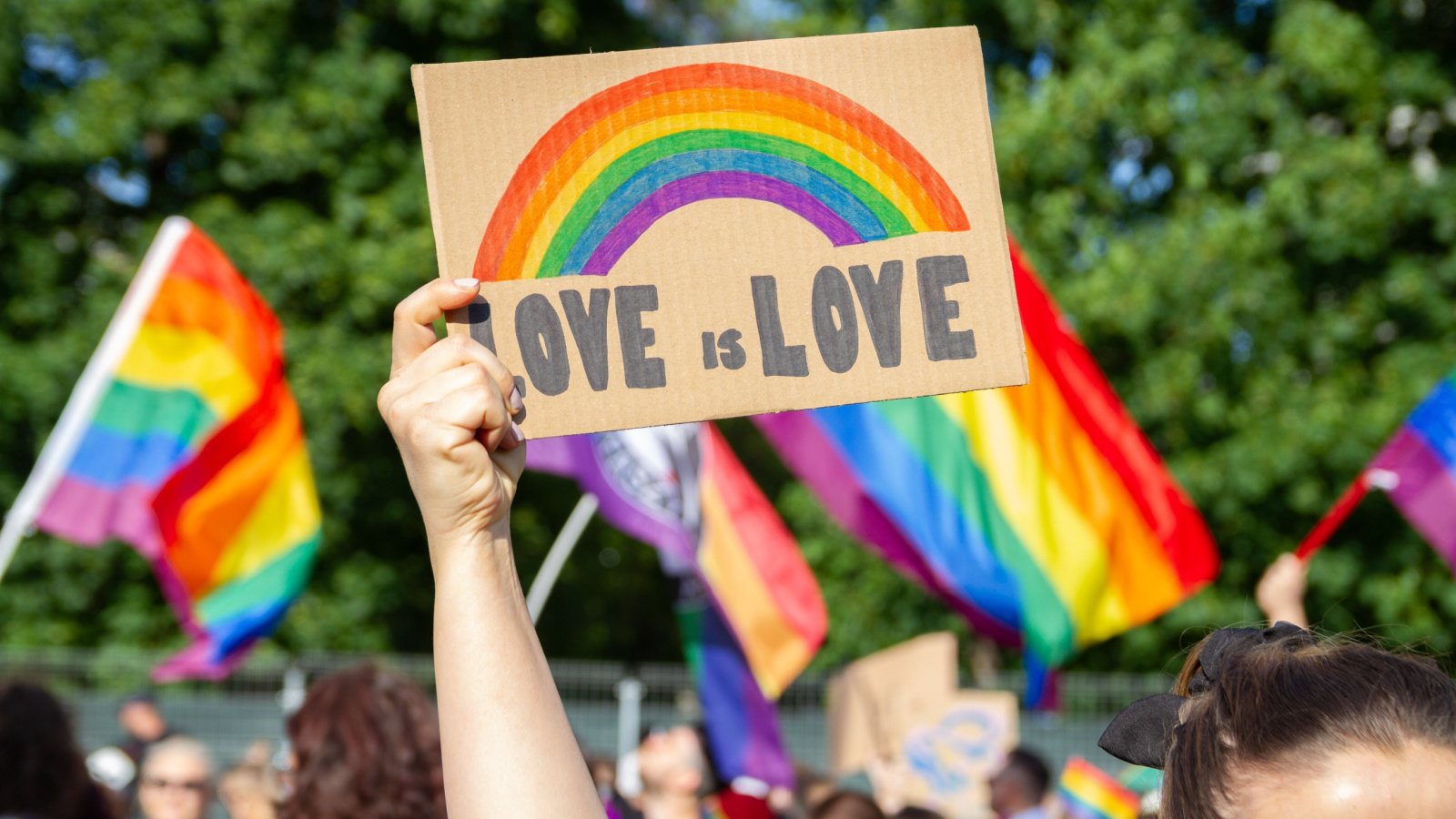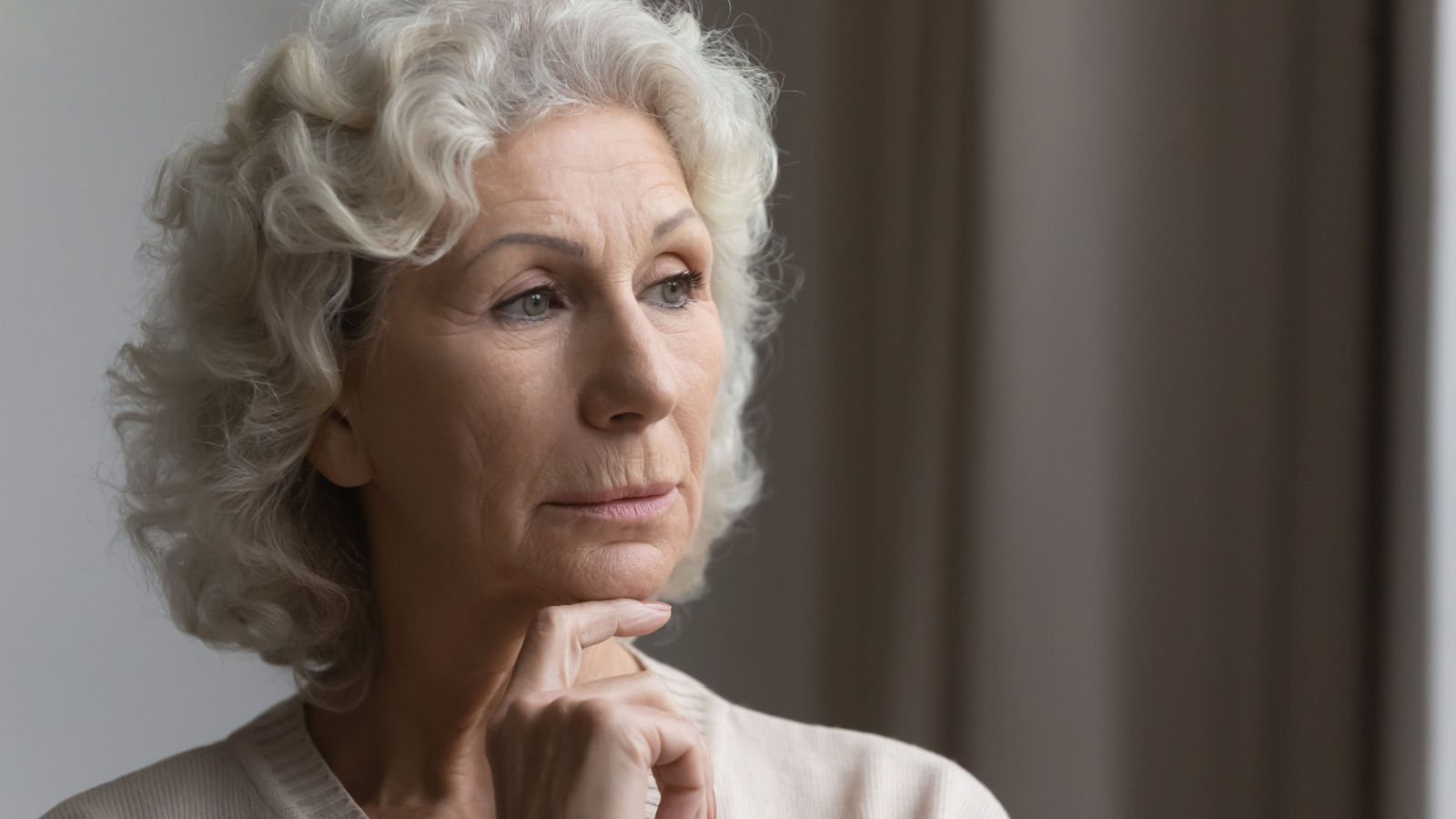Vatican City has issued a new doctrine that starkly challenges contemporary understandings of gender identity. This puts the Roman Catholic Church at a direct collision course with LGBTQ+ rights, igniting a fierce debate across the globe.
Vatican’s New Declaration

Vatican City made headlines this Monday, unveiling its stance that categorizes gender-affirming surgery and surrogacy alongside abortion and euthanasia as serious breaches of human worth. This move aligns them as acts that, in the Vatican’s eyes, divert from God’s original blueprint for life.
A Document Years in the Making

“Infinite Dignity,” a declaration spanning 20 pages and five years of development, finally received the nod from Pope Francis on March 25, marking a significant moment with its release. It’s a testament to the Vatican’s commitment to its beliefs, even as it ventures into contentious debates.
A Shift for the LGBTQ+ Community

The release presents a perplexing juxtaposition for a Pope known for extending a hand to the LGBTQ+ community, hinting at a delicate balance between acceptance and doctrinal beliefs. It underscores the Vatican’s stance that while individuals are welcome, the ideologies that redefine traditional gender roles are not.
Vatican’s Stance on Gender Identity

Diving into the heart of the controversy, the Vatican emphatically reiterates its disapproval of gender theory, advocating for the immutable nature of biological sex as decreed by God. This section marks a pivotal moment, emphasizing the church’s belief in the sacredness of biological distinctions and the dangers of attempting to alter them.
The Line Drawn by the Vatican

In a critical distinction, the Vatican differentiates between elective gender-affirming procedures and congenital conditions, the latter of which it views as medical issues to be addressed by professionals. This nuanced stance highlights the church’s complex view on medical interventions and the inherent dignity of the individual.
A Polarizing Response

The document instantly sparked outrage among LGBTQ+ advocates, who criticized it as a regressive move that contradicts the Pope’s message of universal respect and love. It has ignited a debate on the church’s role in modern social issues, with concerns about its impact on the safety and acceptance of transgender individuals.
A Conflicted Background

Anticipation has been building around this document since rumors of its existence surfaced in 2019, revealing deep divisions within the church’s hierarchy. The document’s confirmation by Cardinal Víctor Manuel Fernández, known for his progressive views, hints at an ongoing struggle to balance tradition with a changing world.
Balancing Act

In an intriguing turn, Fernández described the document as a conciliatory gesture toward conservatives, following his controversial endorsement of blessings for same-sex couples. This move reveals the Vatican’s intricate dance between adhering to its core doctrines and navigating the evolving landscape of global religious belief and practice.
A Call for Compassion

In a striking move towards inclusivity, the Vatican’s document openly criticizes the criminalization of homosexuality in several countries, reflecting Pope Francis’ earlier sentiments that being homosexual is not an offense. This bold stance underscores a significant effort to bridge gaps, emphasizing that persecution based on sexual orientation is a blatant disregard for human rights.
A Message of Dignity Amidst Controversy

Despite its controversial views on gender fluidity, the Vatican insists on maintaining a welcoming stance, although it remains firm on its beliefs about gender identity. Cardinal Fernández hopes this document will spark as much conversation as his previous work on gay blessings, highlighting the church’s ongoing dialogue with contemporary societal issues.
Reinforcing Traditional Values

The document serves as a modern iteration of the Vatican’s long-standing positions, now with a renewed focus on human dignity. It revisits topics like abortion and euthanasia, while also addressing pressing global issues such as poverty and forced migration, weaving them into the fabric of Catholic doctrine.
A New Stance on Surrogacy

For the first time, the Vatican explicitly condemns surrogacy, arguing it undermines the dignity of both the surrogate mother and the child. This stance challenges the commodification of childbirth and asserts the right of children to a natural origin, questioning the ethics behind the growing surrogacy trend.
Addressing Gender Identity with Nuance

The document reiterates the Vatican’s 2019 stance on gender, advocating for the biological complementarity of sexes. However, it does so with a softened tone, avoiding harsher language previously used to describe homosexual acts, signaling a nuanced approach to contentious gender and sexuality issues.
Seeking a Gentler Discourse

Cardinal Fernández admitted the previous term “intrinsically disordered” was overly harsh and hinted at a shift towards a gentler language to describe the church’s vision of marital relations. This openness to linguistic change reflects an evolving approach within the Vatican to discuss sexuality and creation of life in a manner that resonates more positively with today’s society.
A Continued Call for Inclusion

Father James Martin, a vocal advocate for LGBTQ+ inclusivity within the Catholic Church, noted the document’s consistent stance on gender issues but lauded its explicit condemnation of discrimination and violence against LGBTQ+ individuals. This emphasis on the inherent dignity of LGBTQ+ persons reinforces the message that respect and acceptance are non-negotiable virtues in the Catholic faith.
Pope Francis’ Balancing Act

Pope Francis has been notably active in ministering to transgender individuals, signaling a broader welcome within the church, despite his criticisms of gender theory as a significant threat to societal values. His concern over the imposition of Western gender ideologies on other cultures illustrates the complex dynamics at play as the church navigates global cultural and ethical divides.
The Transgender Community’s Response

The transgender community has expressed deep disappointment with the Vatican’s latest document, criticizing it for failing to incorporate transgender voices and experiences. Activists like Mara Klein argue that dismissing the positive impact of gender-affirming care overlooks the profound benefits it brings to individuals’ lives, aligning them more closely with their true selves and their faith.
A Time of Growing Challenges

The release of the Vatican’s document coincides with a surge in legislative efforts aimed at curtailing the rights and healthcare access of transgender individuals, particularly in the United States. These political movements, coupled with the church’s stance, contribute to an environment where transgender people feel increasingly marginalized and misunderstood, underscoring the urgent need for dialogue and understanding.









https://semaglupharm.com/# Semaglu Pharm
CrestorPharm: Crestor Pharm – Crestor Pharm
https://semaglupharm.com/# Rybelsus for blood sugar control
https://semaglupharm.com/# rybelsus dosing
Semaglu Pharm: semaglutide shots – how much weight can i lose on semaglutide
https://semaglupharm.shop/# SemagluPharm
rybelsus efectos secundarios: SemagluPharm – SemagluPharm
https://semaglupharm.com/# Semaglu Pharm
https://crestorpharm.shop/# Buy statins online discreet shipping
https://semaglupharm.com/# can you cut rybelsus in half
No RX Lipitor online: LipiPharm – LipiPharm
https://semaglupharm.com/# how long has rybelsus been on the market
Semaglu Pharm: Semaglu Pharm – SemagluPharm
http://semaglupharm.com/# SemagluPharm
prednisone 10 tablet: Predni Pharm – PredniPharm
https://semaglupharm.shop/# semaglutide compounded near me
Lipi Pharm: atorvastatin 80 mg after heart attack – Discreet shipping for Lipitor
https://crestorpharm.shop/# is crestor a statin drug
https://semaglupharm.shop/# can rybelsus be used for weight loss
Predni Pharm: Predni Pharm – how can i order prednisone
http://semaglupharm.com/# Rybelsus 3mg 7mg 14mg
prednisone 20mg for sale: PredniPharm – Predni Pharm
https://semaglupharm.shop/# Rybelsus online pharmacy reviews
https://prednipharm.shop/# Predni Pharm
lipitor vs zocor doctor opinions: atorvastatin and depression – Lipi Pharm
https://semaglupharm.shop/# compounded semaglutide
PredniPharm: where to buy prednisone 20mg no prescription – prednisone 50 mg price
https://semaglupharm.com/# mochi semaglutide
Predni Pharm: buy prednisone with paypal canada – Predni Pharm
Rybelsus online pharmacy reviews: does rybelsus cause insomnia – how to reconstitute 5mg semaglutide
http://semaglupharm.com/# Semaglu Pharm
https://medsfrommexico.shop/# Meds From Mexico
canadian mail order pharmacy: canadian drug pharmacy – canadian pharmacy drugs online
https://indiapharmglobal.shop/# India Pharm Global
https://canadapharmglobal.com/# canadian king pharmacy
mexican mail order pharmacies: Meds From Mexico – mexico drug stores pharmacies
https://canadapharmglobal.com/# canadian online pharmacy reviews
canadian online pharmacy: canadian world pharmacy – canadian pharmacy 365
http://medsfrommexico.com/# Meds From Mexico
https://indiapharmglobal.shop/# India Pharm Global
mexican border pharmacies shipping to usa: mexico pharmacies prescription drugs – Meds From Mexico
https://indiapharmglobal.shop/# cheapest online pharmacy india
India Pharm Global: п»їlegitimate online pharmacies india – India Pharm Global
https://indiapharmglobal.shop/# reputable indian online pharmacy
http://indiapharmglobal.com/# mail order pharmacy india
Meds From Mexico: purple pharmacy mexico price list – Meds From Mexico
https://canadapharmglobal.com/# reputable canadian pharmacy
indian pharmacy paypal: reputable indian online pharmacy – п»їlegitimate online pharmacies india
https://medsfrommexico.shop/# Meds From Mexico
http://indiapharmglobal.com/# India Pharm Global
medication from mexico pharmacy: Meds From Mexico – Meds From Mexico
https://indiapharmglobal.shop/# reputable indian pharmacies
mexico pharmacies prescription drugs: Meds From Mexico – medication from mexico pharmacy
https://canadapharmglobal.com/# online canadian pharmacy
http://papafarma.com/# Papa Farma
lubrificante durex: Papa Farma – Papa Farma
http://svenskapharma.com/# jodtabletter apotek
Svenska Pharma: Svenska Pharma – apotek express
https://raskapotek.com/# astaxanthin apotek
http://efarmaciait.com/# EFarmaciaIt
EFarmaciaIt: probio+ intima – EFarmaciaIt
https://papafarma.com/# Papa Farma
Papa Farma: Papa Farma – ed farmacia espaГ±a opiniones
https://raskapotek.com/# apoktek
https://papafarma.shop/# Papa Farma
Rask Apotek: Rask Apotek – Rask Apotek
https://efarmaciait.shop/# EFarmaciaIt
kamagra online: EFarmaciaIt – EFarmaciaIt
https://svenskapharma.com/# var hittar jag mina recept
https://efarmaciait.com/# EFarmaciaIt
EFarmaciaIt: prezzo prisma 50 mg – EFarmaciaIt
https://efarmaciait.shop/# ryaltris spray acquisto online
Papa Farma: sildenafilo 50 mg precio espaГ±a – farmacias online seguras
https://raskapotek.com/# Rask Apotek
https://papafarma.shop/# Papa Farma
Rask Apotek: Rask Apotek – Rask Apotek
https://svenskapharma.shop/# Svenska Pharma
https://efarmaciait.com/# dr max on-line
Papa Farma: se puede comprar diprogenta sin receta – melatonina de 10 mg donde comprar
https://efarmaciait.com/# EFarmaciaIt
http://svenskapharma.com/# lasarett apotek
Rask Apotek: laktatmГҐler apotek – Rask Apotek
https://svenskapharma.com/# helgöppet apotek
Papa Farma: Papa Farma – Papa Farma
hiv-test apotek: Rask Apotek – ormekur hund apotek
https://raskapotek.shop/# Rask Apotek
https://papafarma.com/# farmacia mallorca
Svenska Pharma: apotek lediga jobb – Svenska Pharma
Cialis Oral Jelly: PharmaConnectUSA – ed meds online without doctor prescription
https://medicijnpunt.com/# online drugstore netherlands
http://pharmaconnectusa.com/# rx warehouse pharmacy
PharmaConnectUSA: Urispas – Pharma Connect USA
https://pharmajetzt.shop/# günstiger apotheke
Pharma Confiance: pharmacie de garde Г strasbourg aujourd’hui – maison de garde charcot
https://pharmaconnectusa.shop/# rx crossroads pharmacy refill
http://medicijnpunt.com/# farmacie online
pharmacie de nuit rouen: amoxicilline douleurs jambes – produit pharmaceutique
http://pharmajetzt.com/# online aporheke
slinda 4 mg: acheter viagra pas cher – nuxe tГ©lГ©phone siГЁge social
https://pharmajetzt.com/# shop apot
http://pharmaconfiance.com/# 400 mg en g
Pharma Confiance: site pharmacie – pharmacie pas de la case en ligne
http://pharmaconnectusa.com/# Pharma Connect USA
PharmaJetzt: online aphotheke – aptheke
https://pharmajetzt.com/# apoteke
http://pharmaconfiance.com/# acheter vaccin chat en ligne
MedicijnPunt: medicatie online bestellen – medicijn online bestellen
Pharma Jetzt gГјnstigste apotheke PharmaJetzt
https://pharmaconnectusa.com/# wich store or pharmacy sales hgh
Pharma Jetzt: apotheke internet – shop apothe
cipro publix pharmacy: cialis united pharmacy – PharmaConnectUSA
pharmagold: Pharma Confiance – site pharmacie en ligne fiable
https://pharmajetzt.com/# Pharma Jetzt
PharmaConnectUSA: Cialis Oral Jelly (Orange) – best online pharmacy buy accutane
https://pharmaconnectusa.shop/# Imdur
PharmaConnectUSA: Pharma Connect USA – united pharmacy cialis
http://medicijnpunt.com/# apotek online
https://medicijnpunt.shop/# MedicijnPunt
Pharma Confiance: livraison mГ©dicament paris – Pharma Confiance
Pharma Confiance: Pharma Confiance – sildГ©nafil avis
http://medicijnpunt.com/# MedicijnPunt
online medicine to buy: mail order pharmacies – PharmaConnectUSA
https://pharmajetzt.com/# apotheken bestellung
http://medicijnpunt.com/# MedicijnPunt
Pharma Jetzt: Pharma Jetzt – medikamente online bestellen
filtre douche calcaire: Pharma Confiance – Pharma Confiance
https://pharmajetzt.shop/# internet apotheken ohne versandkosten
Pharma Jetzt: online apotheke schnelle lieferung – apotheke auf rechnung bestellen
http://pharmaconnectusa.com/# PharmaConnectUSA
http://pharmajetzt.com/# apotheken shop online
MedicijnPunt: pseudoephedrine kopen in nederland – betrouwbare online apotheek
https://pharmajetzt.shop/# apotheke online ohne versandkosten
PharmaJetzt: Pharma Jetzt – apotheke bad steben
https://pharmaconnectusa.com/# Pharma Connect USA
Pharma Confiance: phzrmacie – pharmacie de garde marseille ouvert actuellement
http://pharmaconnectusa.com/# viagra cost pharmacy
https://medicijnpunt.shop/# bestellen apotheek
ordre national des pharmacien: Pharma Confiance – sirop toux ouvert conservation
https://pharmajetzt.com/# apotheke online shop
http://pharmaconfiance.com/# Pharma Confiance
Pharma Jetzt: online apothke – PharmaJetzt
https://medicijnpunt.com/# medicijnen kopen
https://pharmajetzt.com/# Pharma Jetzt
Pharma Confiance: Pharma Confiance – pharmacie vГ©tГ©rinaire autour de moi
https://pharmaconfiance.com/# cialis 100 mg avis
apoteheke: onlie apotheke – shop apoth
https://pharmaconnectusa.com/# real online pharmacy
prix slinda pilule: Pharma Confiance – monuril pharmacie
http://pharmaconnectusa.com/# PharmaConnectUSA
PharmaConnectUSA: PharmaConnectUSA – PharmaConnectUSA
http://medicijnpunt.com/# medicatie apotheker review
medicijne: de apotheek – MedicijnPunt
MedicijnPunt: MedicijnPunt – medicijn bestellen
https://pharmaconfiance.shop/# Pharma Confiance
PharmaJetzt: Pharma Jetzt – welche online apotheke ist am gГјnstigsten
http://medicijnpunt.com/# apotheek online nl
https://medicijnpunt.com/# mijn medicijn.nl
Pharma Confiance: Pharma Confiance – Pharma Confiance
Pharma Connect USA unicare pharmacy artane castle PharmaConnectUSA
https://pharmaconfiance.com/# Pharma Confiance
PharmaJetzt: Pharma Jetzt – Pharma Jetzt
http://medicijnpunt.com/# Medicijn Punt
Pharma Confiance: Pharma Confiance – Pharma Confiance
https://pharmaconnectusa.com/# PharmaConnectUSA
PharmaJetzt: online-apotheke – bad steben apotheke
https://pharmaconnectusa.com/# Pharma Connect USA
http://pharmaconfiance.com/# medicament cariban
PharmaJetzt: online apotheken – PharmaJetzt
apotheek medicijnen bestellen: recept medicijnen – Medicijn Punt
https://pharmaconnectusa.shop/# PharmaConnectUSA
pharmacie discount en ligne: Pharma Confiance – clinique vГ©tГ©rinaire lourdes
https://pharmaconfiance.com/# Pharma Confiance
https://medicijnpunt.com/# Medicijn Punt
PharmaJetzt: 123 apotheke – Pharma Jetzt
je ne supporte pas les chaussures de sГ©curitГ© pharmacie des drakkars tГ©lГ©phone pharmacie gael
https://pharmajetzt.shop/# Pharma Jetzt
PharmaJetzt: online apotheke versandkostenfrei ab 10 euro – PharmaJetzt
online apotheek nederland met recept: apotheken in holland – pharma online
medicijnen online bestellen: appotheek – MedicijnPunt
https://medicijnpunt.com/# MedicijnPunt
http://pharmaconnectusa.com/# Pharma Connect USA
TijuanaMeds: TijuanaMeds – mexican border pharmacies shipping to usa
https://tijuanameds.shop/# TijuanaMeds
IndiMeds Direct: IndiMeds Direct – IndiMeds Direct
https://canrxdirect.shop/# canadian pharmacy
http://canrxdirect.com/# online canadian pharmacy
top 10 pharmacies in india: IndiMeds Direct – top 10 pharmacies in india
https://canrxdirect.shop/# onlinepharmaciescanada com
IndiMeds Direct: top 10 pharmacies in india – IndiMeds Direct
https://indimedsdirect.com/# IndiMeds Direct
http://canrxdirect.com/# canadian pharmacy
canadian pharmacy: canada pharmacy online – canadianpharmacyworld com
http://tijuanameds.com/# TijuanaMeds
mexican pharmaceuticals online: TijuanaMeds – medication from mexico pharmacy
http://canrxdirect.com/# online canadian pharmacy reviews
https://tijuanameds.com/# mexico pharmacies prescription drugs
IndiMeds Direct: Online medicine order – IndiMeds Direct
https://tijuanameds.com/# mexican pharmaceuticals online
mexican pharmaceuticals online: п»їbest mexican online pharmacies – pharmacies in mexico that ship to usa
http://tijuanameds.com/# mexican online pharmacies prescription drugs
onlinecanadianpharmacy 24: CanRx Direct – canada pharmacy online
https://indimedsdirect.com/# IndiMeds Direct
http://tijuanameds.com/# TijuanaMeds
global pharmacy: RxFree Meds – RxFree Meds
https://farmaciaasequible.com/# Farmacia Asequible
opiniones supradyn: Farmacia Asequible – Farmacia Asequible
https://farmaciaasequible.com/# gominolas para adelgazar opiniones
https://enclomiphenebestprice.com/# enclomiphene for sale
no prescription pharmacy paypal: ventolin hfa pharmacy – RxFree Meds
http://enclomiphenebestprice.com/# enclomiphene price
farmacia ds: Farmacia Asequible – farmacia online economica
http://farmaciaasequible.com/# crema emla precio
https://farmaciaasequible.shop/# farmacia 24 horas badajoz
online pharmacy weight loss: discount drug store pharmacy – pharmacy rx one legit
http://enclomiphenebestprice.com/# buy enclomiphene online
http://farmaciaasequible.com/# Farmacia Asequible
http://rxfreemeds.com/# boots pharmacy doxycycline
tramadol spanje comprar cialis Farmacia Asequible
http://farmaciaasequible.com/# farmacias 24 horas barcelona
http://enclomiphenebestprice.com/# enclomiphene buy
Feldene: reliable online pharmacy accutane – shopko online pharmacy
https://enclomiphenebestprice.com/# enclomiphene for sale
enclomiphene testosterone: enclomiphene for sale – enclomiphene online
Farmacia Asequible: farmacia online espaГ±a envГo internacional – antibiotica spanje
https://enclomiphenebestprice.shop/# enclomiphene for men
enclomiphene for men: enclomiphene for sale – enclomiphene price
https://farmaciaasequible.shop/# citrafleet sobres
Farmacia Asequible: Farmacia Asequible – aquilea opiniones
http://rxfreemeds.com/# RxFree Meds
Farmacia Asequible: Farmacia Asequible – Farmacia Asequible
http://rxfreemeds.com/# express scripts online pharmacy
Farmacia Asequible: famarcia – Farmacia Asequible
https://farmaciaasequible.com/# elocom soluciГіn opiniones
https://rxfreemeds.com/# flomax online pharmacy
RxFree Meds: RxFree Meds – RxFree Meds
https://enclomiphenebestprice.shop/# enclomiphene for sale
https://enclomiphenebestprice.shop/# enclomiphene online
RxFree Meds: RxFree Meds – script pharmacy
https://meximedsexpress.shop/# MexiMeds Express
top online pharmacy india: IndoMeds USA – mail order pharmacy india
https://indomedsusa.shop/# india pharmacy mail order
http://meximedsexpress.com/# reputable mexican pharmacies online
bartell drug store pharmacy hours: MediSmart Pharmacy – heb online pharmacy
https://indomedsusa.shop/# IndoMeds USA
IndoMeds USA: indianpharmacy com – п»їlegitimate online pharmacies india
https://meximedsexpress.shop/# MexiMeds Express
https://meximedsexpress.com/# MexiMeds Express
п»їlegitimate online pharmacies india: top online pharmacy india – cheapest online pharmacy india
https://meximedsexpress.shop/# MexiMeds Express
cialis usa pharmacy: italian pharmacy online – online pharmacy cialis
https://meximedsexpress.shop/# purple pharmacy mexico price list
http://medismartpharmacy.com/# asda pharmacy doxycycline
mexican rx online: MexiMeds Express – MexiMeds Express
https://meximedsexpress.com/# mexican drugstore online
indian pharmacy paypal: IndoMeds USA – IndoMeds USA
http://indomedsusa.com/# IndoMeds USA
https://medismartpharmacy.com/# compound pharmacy
buying prescription drugs in mexico online: purple pharmacy mexico price list – MexiMeds Express
http://indomedsusa.com/# top online pharmacy india
synthroid pharmacy price: pain meds online pharmacy – cost of viagra in pharmacy
https://medismartpharmacy.com/# online cialis uk pharmacy
https://meximedsexpress.com/# buying prescription drugs in mexico
MexiMeds Express: MexiMeds Express – buying prescription drugs in mexico online
https://indomedsusa.com/# IndoMeds USA
india pharmacy: world pharmacy india – reputable indian online pharmacy
https://meximedsexpress.shop/# MexiMeds Express
IndoMeds USA IndoMeds USA IndoMeds USA
IndoMeds USA: india pharmacy mail order – IndoMeds USA
http://indomedsusa.com/# top online pharmacy india
https://medismartpharmacy.shop/# can i buy viagra at pharmacy
rx pharmacy cards: MediSmart Pharmacy – pharmacy sell viagra
https://indomedsusa.shop/# indian pharmacy
https://medismartpharmacy.shop/# rexall pharmacy store hours
MexiMeds Express: mexican rx online – MexiMeds Express
http://medismartpharmacy.com/# northern pharmacy
MexiMeds Express mexican border pharmacies shipping to usa MexiMeds Express
MexiMeds Express: MexiMeds Express – MexiMeds Express
https://meximedsexpress.com/# MexiMeds Express
IndoMeds USA: IndoMeds USA – top 10 online pharmacy in india
https://meximedsexpress.shop/# MexiMeds Express
best india pharmacy: online shopping pharmacy india – IndoMeds USA
https://meximedsexpress.shop/# buying prescription drugs in mexico online
http://indomedsusa.com/# IndoMeds USA
tadalafil gГ©nГ©rique: PharmaDirecte – medicament avec ordonnance
http://clinicagaleno.com/# se puede comprar el ventolin sin receta
sildenafil 100mg: gradient farmaco – farmacia online svizzera
https://pharmadirecte.shop/# jasminelle pilule generique
http://ordinasalute.com/# imigran prezzo
spasmex compresse prezzo: normast 600 – farmacia online piu affidabile
https://ordinasalute.com/# sonirem gocce dopo quanto fa effetto
combantrin prezzo: OrdinaSalute – costo brufen 600
https://ordinasalute.shop/# consegna farmaci a domicilio
https://pharmadirecte.shop/# test urinaire sans ordonnance
crema emla prezzo: OrdinaSalute – farmacia online-italia
http://ordinasalute.com/# algix 90 mg prezzo
mycostatin prezzo mutuabile: meglio compresse o bustine – diflucan 100
https://clinicagaleno.shop/# oraquick farmacia online
https://clinicagaleno.com/# retirides farmacia online
pilule bleu en pharmacie sans ordonnance: PharmaDirecte – location tire-lait pharmacie sans ordonnance
http://pharmadirecte.com/# peut on aller au laboratoire sans ordonnance
prometrium 200: OrdinaSalute – cilodex gocce costo
https://clinicagaleno.com/# colirio tobrex se puede comprar sin receta
https://zorgpakket.com/# medicatie online bestellen
online apotheek recept: Medicijn Punt – medicijnen kopen met ideal
http://tryggmed.com/# elektrolytter drikke apotek
blod i avfГёring test apotek: doptest apotek – sitronsyre apotek
apotheke nl Medicijn Punt online apotheek zonder recept ervaringen
https://zorgpakket.shop/# apotheek online
online apotheek nederland met recept: apotheken nederland – medicijnen bestellen zonder recept
http://snabbapoteket.com/# apotek väteperoxid
online recept Medicijn Punt belgische online apotheek
panthenol apotek: Trygg Med – isopropanol apotek
http://snabbapoteket.com/# hur stavas schampo
http://snabbapoteket.com/# apotwa
online apotheek 24 Medicijn Punt belgie apotheek online
pregnancy test apotek: kaliumjodid apotek – beste nettapotek
https://snabbapoteket.com/# köp receptbelagd medicin online
mijn medicijnkosten online apotheek 24 online medicijnen
salvie te apotek: Trygg Med – bestill resept pГҐ nett
https://zorgpakket.shop/# medicijnen aanvragen
http://zorgpakket.com/# online apotheke
birth control online pharmacy: ExpressCareRx – pharmaceutical online
https://medimexicorx.shop/# MediMexicoRx
generic propecia united pharmacy: safe online pharmacy – permethrin cream online pharmacy
https://indiamedshub.com/# best online pharmacy india
meds online without doctor prescription: ExpressCareRx – Doxycycline
https://indiamedshub.shop/# indian pharmacy online
ExpressCareRx: in house pharmacy propecia – pharmacy rx one viagra
propecia pharmacy prices: ExpressCareRx – united pharmacy cialis
http://indiamedshub.com/# IndiaMedsHub
http://indiamedshub.com/# indian pharmacy online
ExpressCareRx: ExpressCareRx – ExpressCareRx
MediMexicoRx: buy cheap meds from a mexican pharmacy – order azithromycin mexico
https://expresscarerx.online/# ExpressCareRx
order from mexican pharmacy online MediMexicoRx isotretinoin from mexico
http://expresscarerx.org/# ExpressCareRx
IndiaMedsHub: reputable indian online pharmacy – IndiaMedsHub
best online pharmacy uk viagra: Ventolin inhalator – ExpressCareRx
remote consultation online pharmacy voltaren epharmacy viagra online us pharmacy no prescription
https://expresscarerx.org/# online pharmacy tamoxifen
online shopping pharmacy india: IndiaMedsHub – best online pharmacy india
illegal online pharmacy: mexican online pharmacy – ExpressCareRx
IndiaMedsHub indian pharmacy paypal IndiaMedsHub
http://indiamedshub.com/# Online medicine order
IndiaMedsHub: world pharmacy india – IndiaMedsHub
MediMexicoRx modafinil mexico online MediMexicoRx
https://medimexicorx.com/# best online pharmacies in mexico
https://medimexicorx.com/# mexican pharmaceuticals online
ExpressCareRx: amoxicillin target pharmacy – ExpressCareRx
order azithromycin mexico: buy propecia mexico – buy modafinil from mexico no rx
IndiaMedsHub IndiaMedsHub IndiaMedsHub
https://indiamedshub.shop/# india online pharmacy
MediMexicoRx: buy antibiotics from mexico – MediMexicoRx
pharmacy direct gabapentin generic viagra online pharmacy med store pharmacy
https://finasteridefromcanada.shop/# cheap Propecia Canada
buy generic lexapro online: buy cheap lexapro online – Lexapro for depression online
Accutane for sale: generic isotretinoin – Isotretinoin From Canada
http://finasteridefromcanada.com/# Finasteride From Canada
Isotretinoin From Canada: cheap Accutane – Accutane for sale
Isotretinoin From Canada: Accutane for sale – cheap Accutane
https://lexapro.pro/# buy lexapro no prescription
Isotretinoin From Canada: generic isotretinoin – Accutane for sale
generic Finasteride without prescription: Propecia for hair loss online – cheap Propecia Canada
https://finasteridefromcanada.shop/# Propecia for hair loss online
buy Cialis online cheap buy Cialis online cheap generic Cialis from India
buy lexapro from canada: Lexapro for depression online – brand name lexapro from canada
Isotretinoin From Canada: USA-safe Accutane sourcing – generic isotretinoin
https://zoloft.company/# Zoloft Company
cheap Propecia Canada generic Finasteride without prescription cheap Propecia Canada
purchase generic Zoloft online discreetly: buy Zoloft online without prescription USA – cheap Zoloft
lexapro generic 20 mg: lexapro coupon – lexapro generic 20 mg
http://isotretinoinfromcanada.com/# USA-safe Accutane sourcing
Cialis without prescription Cialis without prescription Cialis without prescription
https://finasteridefromcanada.com/# generic Finasteride without prescription
Propecia for hair loss online: Propecia for hair loss online – cheap Propecia Canada
generic Finasteride without prescription: Finasteride From Canada – generic Finasteride without prescription
https://lexapro.pro/# cheapest price for lexapro
Lexapro for depression online lexapro 10 mg price in india lexapro escitalopram
https://tadalafilfromindia.shop/# buy Cialis online cheap
Accutane for sale: Isotretinoin From Canada – purchase generic Accutane online discreetly
buy Cialis online cheap: tadalafil online no rx – canadian pharmacy tadalafil
generic Cialis from India best tadalafil generic buy tadalafil over the counter
https://isotretinoinfromcanada.shop/# buy Accutane online
https://finasteridefromcanada.shop/# generic Finasteride without prescription
cheap Propecia Canada: cheap Propecia Canada – cost propecia no prescription
Lexapro for depression online: Lexapro for depression online – where can i buy generic lexapro
cheap Propecia Canada order propecia without rx cheap Propecia Canada
http://tadalafilfromindia.com/# tadalafil online no rx
Zoloft online pharmacy USA: cheap Zoloft – Zoloft Company
Lexapro for depression online: Lexapro for depression online – п»їlexapro
Zoloft Company buy Zoloft online without prescription USA sertraline online
https://zoloft.company/# sertraline online
http://tadalafilfromindia.com/# generic Cialis from India
USA-safe Accutane sourcing: USA-safe Accutane sourcing – cheap Accutane
cheap propecia: Propecia for hair loss online – cheap Propecia Canada
https://isotretinoinfromcanada.com/# Isotretinoin From Canada
Lexapro for depression online lexapro generic brand name Lexapro for depression online
Cialis without prescription: tadalafil 100mg – tadalafil online no rx
https://finasteridefromcanada.shop/# cost propecia online
tadalafil online no rx generic Cialis from India tadalafil 10mg generic
https://isotretinoinfromcanada.com/# USA-safe Accutane sourcing
generic Finasteride without prescription: Finasteride From Canada – generic Finasteride without prescription
https://zoloft.company/# buy Zoloft online
Finasteride From Canada Finasteride From Canada cheap Propecia Canada
order isotretinoin from Canada to US: order isotretinoin from Canada to US – buy Accutane online
Zoloft Company buy Zoloft online buy Zoloft online without prescription USA
buy Zoloft online: Zoloft online pharmacy USA – cheap Zoloft
https://zoloft.company/# Zoloft online pharmacy USA
Propecia for hair loss online Finasteride From Canada generic Finasteride without prescription
order isotretinoin from Canada to US: USA-safe Accutane sourcing – USA-safe Accutane sourcing
generic Finasteride without prescription Finasteride From Canada generic propecia prices
Zoloft online pharmacy USA: purchase generic Zoloft online discreetly – Zoloft online pharmacy USA
https://zoloft.company/# cheap Zoloft
buy Zoloft online without prescription USA: sertraline online – sertraline online
cost propecia: buy cheap propecia without rx – rx propecia
tadalafil online no rx: Tadalafil From India – Tadalafil From India
https://lexapro.pro/# Lexapro for depression online
purchase generic Accutane online discreetly: USA-safe Accutane sourcing – buy Accutane online
lexapro tablets australia: Lexapro for depression online – lexapro brand name
gabapentin manufacture: NeuroRelief Rx – NeuroRelief Rx
where to buy Modafinil legally in the US: safe Provigil online delivery service – prescription-free Modafinil alternatives
https://clomidhubpharmacy.shop/# how to buy generic clomid without prescription
nootropic Modafinil shipped to USA Modafinil for ADHD and narcolepsy prescription-free Modafinil alternatives
Relief Meds USA: order corticosteroids without prescription – anti-inflammatory steroids online
where can i buy generic clomid: order generic clomid pill – Clomid Hub Pharmacy
Clomid Hub can you get generic clomid online where can i get cheap clomid price
Relief Meds USA: prednisone 10mg price in india – anti-inflammatory steroids online
antibiotic treatment online no Rx: low-cost antibiotics delivered in USA – can you buy amoxicillin over the counter in canada
order corticosteroids without prescription: anti-inflammatory steroids online – anti-inflammatory steroids online
NeuroRelief Rx [url=https://neuroreliefrx.com/#]gabapentin dosage zoster[/url] NeuroRelief Rx
gabapentin vicodin high: gabapentin phenibut combo – NeuroRelief Rx
where to buy cheap clomid tablets: Clomid Hub Pharmacy – cost of generic clomid without insurance
how can i get cheap clomid online Clomid Hub Pharmacy buying generic clomid prices
Relief Meds USA: prednisone 10mg buy online – prednisone 20mg buy online
low-cost antibiotics delivered in USA: Clear Meds Direct – Clear Meds Direct
http://clomidhubpharmacy.com/# how to buy cheap clomid without prescription
can i order generic clomid pill: how can i get generic clomid price – Clomid Hub
smart drugs online US pharmacy affordable Modafinil for cognitive enhancement where to buy Modafinil legally in the US
anti-inflammatory steroids online: Relief Meds USA – prednisone 20mg tablets where to buy
buy Modafinil online USA buy Modafinil online USA order Provigil without prescription
gabapentin indications use: NeuroRelief Rx – NeuroRelief Rx
http://neuroreliefrx.com/# NeuroRelief Rx
anti-inflammatory steroids online: order corticosteroids without prescription – ReliefMeds USA
where to buy clomid without dr prescription how can i get clomid no prescription Clomid Hub Pharmacy
Clomid Hub: can you buy cheap clomid without insurance – where can i get cheap clomid for sale
ReliefMeds USA: order corticosteroids without prescription – anti-inflammatory steroids online
prednisone without rx 20 mg of prednisone prednisone 10 mg
antibiotic treatment online no Rx: ClearMeds Direct – low-cost antibiotics delivered in USA
https://neuroreliefrx.shop/# NeuroRelief Rx
Relief Meds USA: prednisone brand name us – anti-inflammatory steroids online
Clomid Hub Pharmacy Clomid Hub Pharmacy Clomid Hub Pharmacy
NeuroRelief Rx: gabapentin 600 mg two at night – NeuroRelief Rx
prednisone cost us: how can i order prednisone – ReliefMeds USA
Modafinil for ADHD and narcolepsy: safe Provigil online delivery service – prescription-free Modafinil alternatives
Relief Meds USA ReliefMeds USA anti-inflammatory steroids online
Relief Meds USA: prednisone prices – ReliefMeds USA
https://neuroreliefrx.com/# does gabapentin cause respiratory depression
nootropic Modafinil shipped to USA: order Provigil without prescription – affordable Modafinil for cognitive enhancement
ClearMeds Direct amoxicillin online without prescription ClearMeds Direct
Relief Meds USA: order corticosteroids without prescription – prednisone 20 mg purchase
wakefulness medication online no Rx: wakefulness medication online no Rx – buy Modafinil online USA
buy Modafinil online USA: wakefulness medication online no Rx – where to buy Modafinil legally in the US
IndiGenix Pharmacy: buy medicines online in india – IndiGenix Pharmacy
CanadRx Nexus: CanadRx Nexus – canadian pharmacy com
https://mexicarerxhub.com/# medicine in mexico pharmacies
mexican border pharmacies shipping to usa: MexiCare Rx Hub – MexiCare Rx Hub
reputable indian pharmacies: reputable indian online pharmacy – IndiGenix Pharmacy
CanadRx Nexus: online canadian pharmacy review – canadian pharmacy 24h com
IndiGenix Pharmacy: IndiGenix Pharmacy – IndiGenix Pharmacy
MexiCare Rx Hub: MexiCare Rx Hub – MexiCare Rx Hub
https://canadrxnexus.com/# cheap canadian pharmacy
CanadRx Nexus: canadian pharmacies compare – CanadRx Nexus
mexico drug stores pharmacies: MexiCare Rx Hub – MexiCare Rx Hub
indian pharmacy: best india pharmacy – IndiGenix Pharmacy
indian pharmacy paypal: IndiGenix Pharmacy – IndiGenix Pharmacy
IndiGenix Pharmacy: IndiGenix Pharmacy – IndiGenix Pharmacy
india pharmacy: IndiGenix Pharmacy – IndiGenix Pharmacy
https://mexicarerxhub.shop/# buying from online mexican pharmacy
canadian pharmacy: reliable canadian online pharmacy – best canadian pharmacy
medicine in mexico pharmacies: MexiCare Rx Hub – mexico pharmacies prescription drugs
canadian pharmacies comparison: reddit canadian pharmacy – canadian valley pharmacy
CanadRx Nexus: canadian pharmacy cheap – CanadRx Nexus
best online pharmacies in mexico: mexican rx online – MexiCare Rx Hub
CanadRx Nexus: buy prescription drugs from canada cheap – is canadian pharmacy legit
best online pharmacy india: IndiGenix Pharmacy – india pharmacy
http://canadrxnexus.com/# CanadRx Nexus
buying prescription drugs in mexico online: mexico drug stores pharmacies – MexiCare Rx Hub
reputable indian online pharmacy: indianpharmacy com – top 10 online pharmacy in india
indian pharmacy: IndiGenix Pharmacy – IndiGenix Pharmacy
MexiCare Rx Hub: order from mexican pharmacy online – MexiCare Rx Hub
IndiGenix Pharmacy: IndiGenix Pharmacy – IndiGenix Pharmacy
MexiCare Rx Hub: MexiCare Rx Hub – medicine in mexico pharmacies
https://mexicarerxhub.com/# reputable mexican pharmacies online
IndiGenix Pharmacy: top 10 pharmacies in india – india online pharmacy
sildenafil mexico online: legit mexico pharmacy shipping to USA – generic drugs mexican pharmacy
IndiGenix Pharmacy: IndiGenix Pharmacy – IndiGenix Pharmacy
CanadRx Nexus: canadian neighbor pharmacy – pharmacy canadian superstore
IndiGenix Pharmacy: IndiGenix Pharmacy – cheapest online pharmacy india
canadian family pharmacy: CanadRx Nexus – CanadRx Nexus
https://mexicarerxhub.shop/# п»їbest mexican online pharmacies
pharmacy website india: IndiGenix Pharmacy – online shopping pharmacy india
legitimate online pharmacies india: legitimate online pharmacies india – india pharmacy
MexiCare Rx Hub: MexiCare Rx Hub – MexiCare Rx Hub
AsthmaFree Pharmacy: AsthmaFree Pharmacy – AsthmaFree Pharmacy
safe online source for Tizanidine: prescription-free muscle relaxants – affordable Zanaflex online pharmacy
http://glucosmartrx.com/# AsthmaFree Pharmacy
buy Zanaflex online USA: RelaxMedsUSA – Tizanidine tablets shipped to USA
IverCare Pharmacy: ivermectin buy canada – cost of stromectol
ventolin price us: purchase ventolin – ventolin from mexico to usa
AsthmaFree Pharmacy: AsthmaFree Pharmacy – AsthmaFree Pharmacy
https://glucosmartrx.com/# rybelsus semaglutide what is rybelsus
ventolin online no prescription ventolin 90 mg ventolin prescription australia
AsthmaFree Pharmacy: AsthmaFree Pharmacy – does medicare cover rybelsus
Tizanidine tablets shipped to USA: affordable Zanaflex online pharmacy – Tizanidine 2mg 4mg tablets for sale
IverCare Pharmacy ivermectin canada buy ivermectin USA
trusted pharmacy Zanaflex USA safe online source for Tizanidine relief from muscle spasms online
lasix uses: lasix pills – buy furosemide online
http://fluidcarepharmacy.com/# furosemide 40 mg
ventolin online: AsthmaFree Pharmacy – AsthmaFree Pharmacy
FluidCare Pharmacy lasix dosage lasix dosage
AsthmaFree Pharmacy: semaglutide brand – AsthmaFree Pharmacy
IverCare Pharmacy dosage for ivermectin in dogs ivermectin dosage for mice
relief from muscle spasms online: relief from muscle spasms online – buy Zanaflex online USA
buy furosemide online: lasix furosemide – FluidCare Pharmacy
https://ivercarepharmacy.com/# ivermectin uses in humans
FluidCare Pharmacy FluidCare Pharmacy lasix furosemide
IverCare Pharmacy: ivermectin for cattle – IverCare Pharmacy
safe online source for Tizanidine: affordable Zanaflex online pharmacy – RelaxMedsUSA
ventolin price in usa ventolin tablet AsthmaFree Pharmacy
AsthmaFree Pharmacy: ventolin 500 mcg – ventolin evohaler
horse wormer ivermectin IverCare Pharmacy stromectol lotion
https://fluidcarepharmacy.shop/# buy furosemide online
ventolin otc canada: cost of ventolin in usa – ventolin hfa inhaler
ivermectin cream for dogs: durvet ivermectin – ivermectin cream uses
ivermectin hiv cattle ivermectin ivermectin sensitivity in dogs
IverCare Pharmacy: over the counter ivermectin for humans – chicken lice treatment ivermectin
semaglutide pills AsthmaFree Pharmacy what is rybelsus
https://glucosmartrx.shop/# semaglutide gastroparesis
rybelsus for sale: semaglutide and nausea – AsthmaFree Pharmacy
Zanaflex medication fast delivery prescription-free muscle relaxants RelaxMedsUSA
IverCare Pharmacy: ivermectin for budgies – does ivermectin kill fleas
AsthmaFree Pharmacy: AsthmaFree Pharmacy – weight loss drug semaglutide
FluidCare Pharmacy FluidCare Pharmacy generic lasix
safe online source for Tizanidine: Tizanidine 2mg 4mg tablets for sale – relief from muscle spasms online
muscle relaxants online no Rx: order Tizanidine without prescription – Zanaflex medication fast delivery
http://glucosmartrx.com/# should i switch from semaglutide to tirzepatide
what are the side effects of rybelsus 7 mg rybelsus price price of rybelsus
ventolin 4mg: ventolin pharmacy – compare ventolin prices
AsthmaFree Pharmacy: AsthmaFree Pharmacy – AsthmaFree Pharmacy
strive semaglutide can you drink alcohol while taking semaglutide cheapest semaglutide
IverCare Pharmacy: is stromectol the same as ivermectin – IverCare Pharmacy
generic ventolin price: AsthmaFree Pharmacy – ventolin cost in canada
Situs judi online terpercaya Indonesia: Mandiribet login – Situs judi resmi berlisensi
https://swertewin.life/# Swerte99 casino walang deposit bonus para sa Pinoy
Jiliko casino jilwin jilwin
Qeydiyyat bonusu Pinco casino: Pinco kazino – Pinco r?smi sayt
jollibet casino: 1winphili – jollibet
Judi online deposit pulsa Mandiribet login Slot jackpot terbesar Indonesia
Swerte99 casino: Swerte99 – Swerte99 online gaming Pilipinas
jollibet casino: Jollibet online sabong – jollibet
https://mandiwinindo.site/# Mandiribet
jollibet casino jollibet app jollibet casino
Situs judi resmi berlisensi: Judi online deposit pulsa – Slot jackpot terbesar Indonesia
Abutogel login: Link alternatif Abutogel – Link alternatif Abutogel
Swerte99 casino walang deposit bonus para sa Pinoy: Swerte99 online gaming Pilipinas – Swerte99 casino walang deposit bonus para sa Pinoy
Jiliko casino: Jiliko slots – Jiliko app
Swerte99 login Swerte99 slots Swerte99 app
https://1winphili.company/# jollibet
Swerte99 casino walang deposit bonus para sa Pinoy: Swerte99 bonus – Swerte99 casino
Canl? krupyerl? oyunlar: Onlayn rulet v? blackjack – Yuks?k RTP slotlar
jollibet login Jollibet online sabong Online betting Philippines
Yeni az?rbaycan kazino sayt?: Pinco casino mobil t?tbiq – Etibarl? onlayn kazino Az?rbaycanda
jollibet: Online gambling platform Jollibet – Online casino Jollibet Philippines
Qeydiyyat bonusu Pinco casino Pinco casino mobil t?tbiq Pinco casino mobil t?tbiq
Promo slot gacor hari ini: Situs judi resmi berlisensi – Link alternatif Beta138
https://abutowin.icu/# Abutogel login
Etibarl? onlayn kazino Az?rbaycanda: Onlayn rulet v? blackjack – Pinco casino mobil t?tbiq
Bandar togel resmi Indonesia Link alternatif Abutogel Situs togel online terpercaya
Bandar togel resmi Indonesia: Abutogel – Link alternatif Abutogel
Jiliko slots: Jiliko login – Jiliko casino
Situs togel online terpercaya Situs togel online terpercaya Bandar togel resmi Indonesia
Situs judi resmi berlisensi: Slot jackpot terbesar Indonesia – Mandiribet login
Tro choi n? hu GK88: Tro choi n? hu GK88 – Slot game d?i thu?ng
https://abutowin.icu/# Link alternatif Abutogel
Nha cai uy tin Vi?t Nam: GK88 – Link vao GK88 m?i nh?t
jollibet login jollibet login Jollibet online sabong
jollibet: Online betting Philippines – Online betting Philippines
Situs judi online terpercaya Indonesia: Slot gacor hari ini – Slot gacor hari ini
warfarin pharmacy protocol [url=https://medidirectusa.shop/#]pain meds online without doctor prescription[/url] zoloft online pharmacy
indian pharmacies safe: Indian Meds One – Indian Meds One
https://mexicanpharmacyhub.shop/# Mexican Pharmacy Hub
MediDirect USA: MediDirect USA – MediDirect USA
MediDirect USA: buspar pharmacy prices – hydrochlorothiazide online pharmacy
Indian Meds One Indian Meds One Indian Meds One
Indian Meds One: п»їlegitimate online pharmacies india – india pharmacy
Mexican Pharmacy Hub: buy modafinil from mexico no rx – prescription drugs mexico pharmacy
https://indianmedsone.shop/# Indian Meds One
pharmacy rx one legit: health partners online pharmacy – pharmacy drug store in finland
online pharmacy ambien no prescription MediDirect USA wegmans online pharmacy
Indian Meds One: Indian Meds One – Indian Meds One
indianpharmacy com: Indian Meds One – Indian Meds One
rybelsus from mexican pharmacy Mexican Pharmacy Hub buy antibiotics from mexico
http://medidirectusa.com/# MediDirect USA
MediDirect USA: Cipro – MediDirect USA
safe mexican online pharmacy: Mexican Pharmacy Hub – low cost mexico pharmacy online
online shopping pharmacy india Indian Meds One mail order pharmacy india
https://indianmedsone.com/# top 10 online pharmacy in india
top 10 pharmacies in india buy prescription drugs from india buy prescription drugs from india
MediDirect USA MediDirect USA MediDirect USA
https://medidirectusa.shop/# online india pharmacy
Online medicine home delivery best india pharmacy top 10 pharmacies in india
http://sildenapeak.com/# SildenaPeak
SildenaPeak: 100mg sildenafil prices – female viagra australia where to buy
Online sources for Kamagra in the United States: ED treatment without doctor visits – ED treatment without doctor visits
http://sildenapeak.com/# can i buy viagra from canada
Kamagra reviews from US customers: Online sources for Kamagra in the United States – Compare Kamagra with branded alternatives
Kamagra reviews from US customers: Kamagra oral jelly USA availability – Men’s sexual health solutions online
KamaMeds: Men’s sexual health solutions online – Kamagra reviews from US customers
Tadalify: Tadalify – Tadalify
http://sildenapeak.com/# SildenaPeak
Sildenafil oral jelly fast absorption effect: KamaMeds – Kamagra oral jelly USA availability
Kamagra oral jelly USA availability: KamaMeds – Sildenafil oral jelly fast absorption effect
http://sildenapeak.com/# SildenaPeak
Men’s sexual health solutions online: Compare Kamagra with branded alternatives – Online sources for Kamagra in the United States
https://sildenapeak.com/# cheap sildenafil tablets uk
Safe access to generic ED medication: ED treatment without doctor visits – Men’s sexual health solutions online
http://sildenapeak.com/# SildenaPeak
http://sildenapeak.com/# SildenaPeak
https://ferticareonline.com/# FertiCare Online
prednisone 1mg purchase: prednisone 10 mg canada – SteroidCare Pharmacy
prednisone buy online nz: prednisone 30 – prednisone without a prescription
SteroidCare Pharmacy: SteroidCare Pharmacy – buying prednisone
FertiCare Online FertiCare Online FertiCare Online
https://trustedmedsdirect.shop/# amoxicillin pharmacy price
can you buy prednisone without a prescription: SteroidCare Pharmacy – SteroidCare Pharmacy
SteroidCare Pharmacy: SteroidCare Pharmacy – prednisone 2.5 tablet
CardioMeds Express CardioMeds Express lasix medication
how can i get clomid online: where to buy cheap clomid no prescription – FertiCare Online
https://cardiomedsexpress.shop/# CardioMeds Express
acquisto farmaci con ricetta farmaci generici a prezzi convenienti Farmacia online miglior prezzo
farmaci senza ricetta elenco: farmaci generici a prezzi convenienti – Farmacia online piГ№ conveniente
http://potenzafacile.com/# viagra originale recensioni
http://forzaintima.com/# kamagra originale e generico online
https://potenzafacile.shop/# siti sicuri per comprare viagra online
http://maplemedsdirect.com/# people’s pharmacy zyrtec
http://maplemedsdirect.com/# asda pharmacy mefloquine
tylenol pharmacy scholarship 2012: MapleMeds Direct – over the counter online pharmacy
http://maplemedsdirect.com/# good rx pharmacy discount
MapleMeds Direct: MapleMeds Direct – MapleMeds Direct
mexican rx online: BorderMeds Express – BorderMeds Express
https://maplemedsdirect.shop/# shopko pharmacy
BorderMeds Express: BorderMeds Express – reputable mexican pharmacies online
humana pharmacy store: MapleMeds Direct – MapleMeds Direct
http://bordermedsexpress.com/# buying prescription drugs in mexico
link alternatif garuda888 terbaru: situs judi online resmi Indonesia – 1win888indonesia
https://1wbona.com/# bonaslot login
preman69 login: preman69 situs judi online 24 jam – preman69 slot
https://1wbook.com/# bonus di benvenuto per Book of Ra Italia
https://1win888indonesia.com/# permainan slot gacor hari ini
https://clearmedspharm.com/#
mawartoto link: mawartoto login – mawartoto link
batarabet login batarabet batara vip
betawi77 link alternatif: betawi 77 slot – betawi 777
toto slot hargatoto hargatoto alternatif hargatoto login
hargatoto: hargatoto – hargatoto alternatif
batarabet login batarabet login batara88
Situs Togel Terpercaya Dan Bandar: Situs Togel Toto 4D – Daftar InaTogel Login Link Alternatif Terbaru
bataraslot login bataraslot alternatif slot online
mawartoto alternatif: mawartoto login – mawartoto alternatif
Official Link Situs Toto Togel: Official Link Situs Toto Togel – Situs Togel Terpercaya Dan Bandar
EverGreenRx USA: canadian online pharmacy no prescription cialis dapoxetine – difference between sildenafil and tadalafil
EverGreenRx USA: EverGreenRx USA – EverGreenRx USA
http://evergreenrxusas.com/# EverGreenRx USA
EverGreenRx USA: EverGreenRx USA – cialis canada price
EverGreenRx USA: how much tadalafil to take – tadalafil (tadalis-ajanta) reviews
https://evergreenrxusas.shop/# EverGreenRx USA
what is the cost of cialis: is tadalafil and cialis the same thing? – cialis patent expiration 2016
cialis pharmacy: cialis 20 mg – EverGreenRx USA
https://intimacareuk.com/# IntimaCareUK
generic sildenafil UK pharmacy https://bluepilluk.shop/# generic sildenafil UK pharmacy
stromectol pills home delivery UK: safe ivermectin pharmacy UK – trusted online pharmacy ivermectin UK
https://mediquickuk.com/# MediQuick
fast delivery viagra UK online http://meditrustuk.com/# MediTrust UK
https://meditrustuk.com/# ivermectin tablets UK online pharmacy
trusted UK digital pharmacy: MediQuick – MediQuick UK
viagra discreet delivery UK https://intimacareuk.com/# branded and generic tadalafil UK pharmacy
discreet ivermectin shipping UK: safe ivermectin pharmacy UK – safe ivermectin pharmacy UK
fast delivery viagra UK online: viagra online UK no prescription – generic sildenafil UK pharmacy
pharmacy online fast delivery UK: MediQuick UK – online pharmacy UK no prescription
IntimaCare UK: tadalafil generic alternative UK – IntimaCare UK
viagra discreet delivery UK: fast delivery viagra UK online – sildenafil tablets online order UK
discreet ivermectin shipping UK: ivermectin without prescription UK – ivermectin cheap price online UK
order adderall from india: CuraBharat USA – CuraBharat USA
order pills online: CuraBharat USA – order medicine from india to usa
http://truenorthpharm.com/# TrueNorth Pharm
http://curabharatusa.com/# CuraBharat USA
mexican mail order pharmacy: SaludFrontera – SaludFrontera
https://truenorthpharm.shop/# TrueNorth Pharm
reputable mexican pharmacy SaludFrontera SaludFrontera
http://saludfrontera.com/# SaludFrontera
india pharmacy: how to purchase medicine online – CuraBharat USA
TrueNorth Pharm legit canadian online pharmacy TrueNorth Pharm
http://potenzapothekede.com/# PotenzApotheke
http://potenzapothekede.com/# tadalafil erfahrungen deutschland
http://mannerkraft.com/# medikamente rezeptfrei
https://intimgesund.shop/# Intim Gesund
EverTrustMeds: Ever Trust Meds – Ever Trust Meds
https://clearmedshub.shop/# ClearMedsHub
ClearMedsHub: Clear Meds Hub – Clear Meds Hub
https://vitaledgepharma.shop/# VitalEdgePharma
EverTrustMeds: Ever Trust Meds – Ever Trust Meds
https://clearmedshub.com/# Clear Meds Hub
http://vitaledgepharma.com/# VitalEdgePharma
ClearMedsHub: ClearMedsHub –
https://vitaledgepharma.shop/# ed medications cost
https://vitaledgepharma.shop/# where can i get ed pills
https://evertrustmeds.shop/# EverTrustMeds
https://vitaledgepharma.com/# VitalEdge Pharma
Ever Trust Meds: EverTrustMeds – Generic Cialis without a doctor prescription
https://vitaledgepharma.com/# VitalEdgePharma
https://curamedsindia.shop/# indian pharmacies
MapleCareRx: Pharmacies in Canada that ship to the US – Canadian pharmacy online
Mexican pharmacy price list: Mexican pharmacy ship to USA – Best Mexican pharmacy online
https://bajamedsdirect.shop/# pharmacy mexico city
indian pharmacy: india pharmacy – Indian pharmacy online
CuraMedsIndia: pharmacy online order – Best Indian pharmacy
https://maplecarerx.shop/# MapleCareRx
https://curamedsindia.com/# Best Indian pharmacy
mexican pharmacy mexican pharmacy MedicExpress MX
Sildenafil 100mg: sildenafil – Buy sildenafil
true vital meds Sildenafil 100mg Buy sildenafil online usa
sildenafil: Buy sildenafil – order sildenafil from canada
Mexican pharmacy price list MedicExpress MX Best online Mexican pharmacy
Generic tadalafil 20mg price: Buy Tadalafil 20mg – tadalafil
Online Mexican pharmacy prescription drugs mexico pharmacy Online Mexican pharmacy
Sildenafil 100mg price: Sildenafil 100mg price – Buy sildenafil
Buy Tadalafil 20mg cheap 10 mg tadalafil Generic Cialis without a doctor prescription
best online pharmacies in mexico: mexico drug stores pharmacies – MedicExpress MX
Sildenafil 100mg price sildenafil compare prices Sildenafil 100mg
Legit online Mexican pharmacy: MedicExpress MX – Mexican pharmacy price list
Generic Cialis without a doctor prescription Buy Tadalafil online Buy Tadalafil 20mg
Online Mexican pharmacy: mexico drug stores pharmacies – mexican online pharmacies prescription drugs
sildenafil pharmacy uk Buy sildenafil Buy sildenafil
Mexican pharmacy price list: mexican pharmacy – mexican pharmacy
Generic Clomid where to get clomid without dr prescription Clomid fertility
generic zithromax: zithromax z- pak buy online – buy zithromax online
buy clomid Clomid price ClomiCare USA
amoxicillin price without insurance: amoxicillin 500 mg tablet price – buy amoxicillin
https://everlastrx.com/# safe online pharmacy for ED pills
http://medreliefuk.com/# UK chemist Prednisolone delivery
https://britmedsdirect.com/# Brit Meds Direct
http://britpharmonline.com/# buy viagra online
http://britmedsdirect.com/# order medication online legally in the UK
British online pharmacy Viagra: buy viagra online – order ED pills online UK
https://britmedsdirect.com/# BritMeds Direct
https://medreliefuk.com/# buy prednisolone
private online pharmacy UK: UK online pharmacy without prescription – private online pharmacy UK
http://amoxicareonline.com/# UK online antibiotic service
BritPharm Online: viagra uk – Viagra online UK
https://amoxicareonline.com/# cheap amoxicillin
generic Amoxicillin pharmacy UK: generic amoxicillin – generic amoxicillin
UK chemist Prednisolone delivery: buy prednisolone – MedRelief UK
http://amoxicareonline.com/# cheap amoxicillin
buy penicillin alternative online: buy penicillin alternative online – generic amoxicillin
best UK online chemist for Prednisolone: buy prednisolone – best UK online chemist for Prednisolone
https://britmedsdirect.com/# UK online pharmacy without prescription
https://amoxicareonline.shop/# Amoxicillin online UK
private online pharmacy UK: order medication online legally in the UK – private online pharmacy UK
https://amoxicareonline.com/# Amoxicillin online UK
online pharmacy: buy clomid – trusted online pharmacy USA
MedicoSur mexico pharmacy MedicoSur
buy Doxycycline online pharmacy online pharmacy
Cialis online USA: affordable Cialis with fast delivery – discreet ED pills delivery in the US
mexican pharmacy MedicoSur mexican pharmacy
tadalafil tablets without prescription: cialis – generic Cialis online pharmacy
cialis generique: livraison rapide et confidentielle – cialis 20 mg achat en ligne
tadalafil senza ricetta: cialis – dove comprare Cialis in Italia
cialis sans ordonnance: achat discret de Cialis 20mg – IntimiSanté
cialis prezzo: farmacia online più conveniente – acquistare Cialis online Italia
tadalafilo: tadalafilo 5 mg precio – farmacia online fiable en España
Tadalafil 20mg Bestellung online: shop apotheke gutschein – Tadalafil 20mg Bestellung online
livraison rapide et confidentielle: pharmacie en ligne – livraison rapide et confidentielle
compresse per disfunzione erettile: miglior prezzo Cialis originale – cialis
livraison rapide et confidentielle: achat discret de Cialis 20mg – pharmacie qui vend du cialis sans ordonnance
https://mediuomo.com/# Viagra generico online Italia
Confia Farmacia: Viagra sin prescripción médica – comprar Sildenafilo sin receta
online apotheek zonder recept veilige online medicijnen Nederland Heren Gezondheid
https://mannensapotek.com/# Viagra utan lakarbesok
ED-medicatie zonder voorschrift: Heren Gezondheid – goedkope Viagra tabletten online
farmacia con entrega rápida: farmacia confiable en España – Viagra genérico online España
http://mannensapotek.com/# mannens apotek
HerenGezondheid: HerenGezondheid – online apotheek zonder recept
http://confiafarmacia.com/# farmacia con entrega rapida